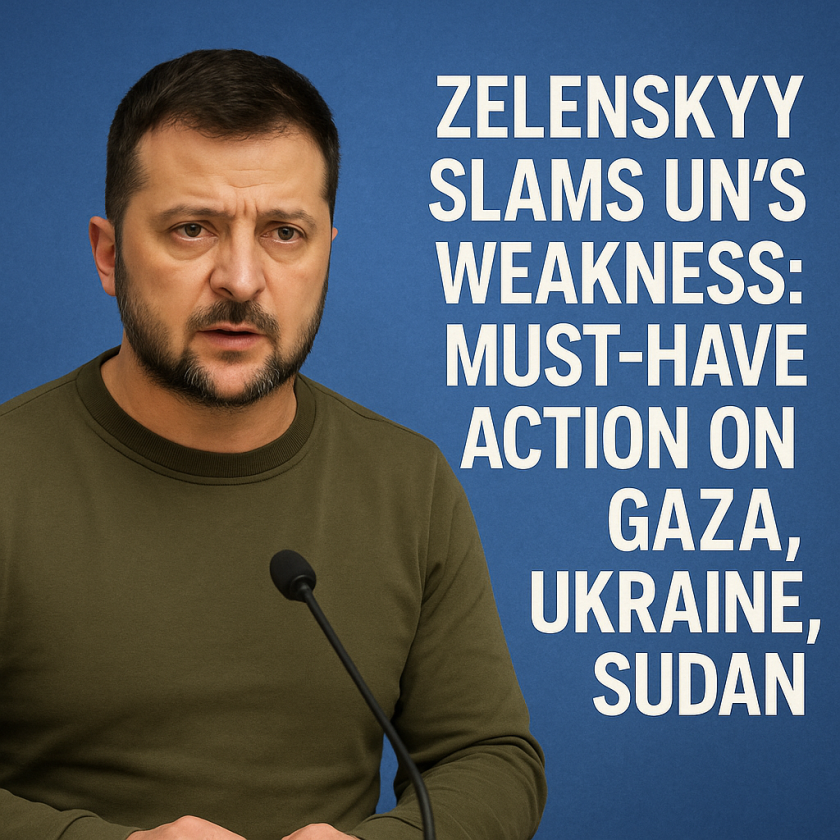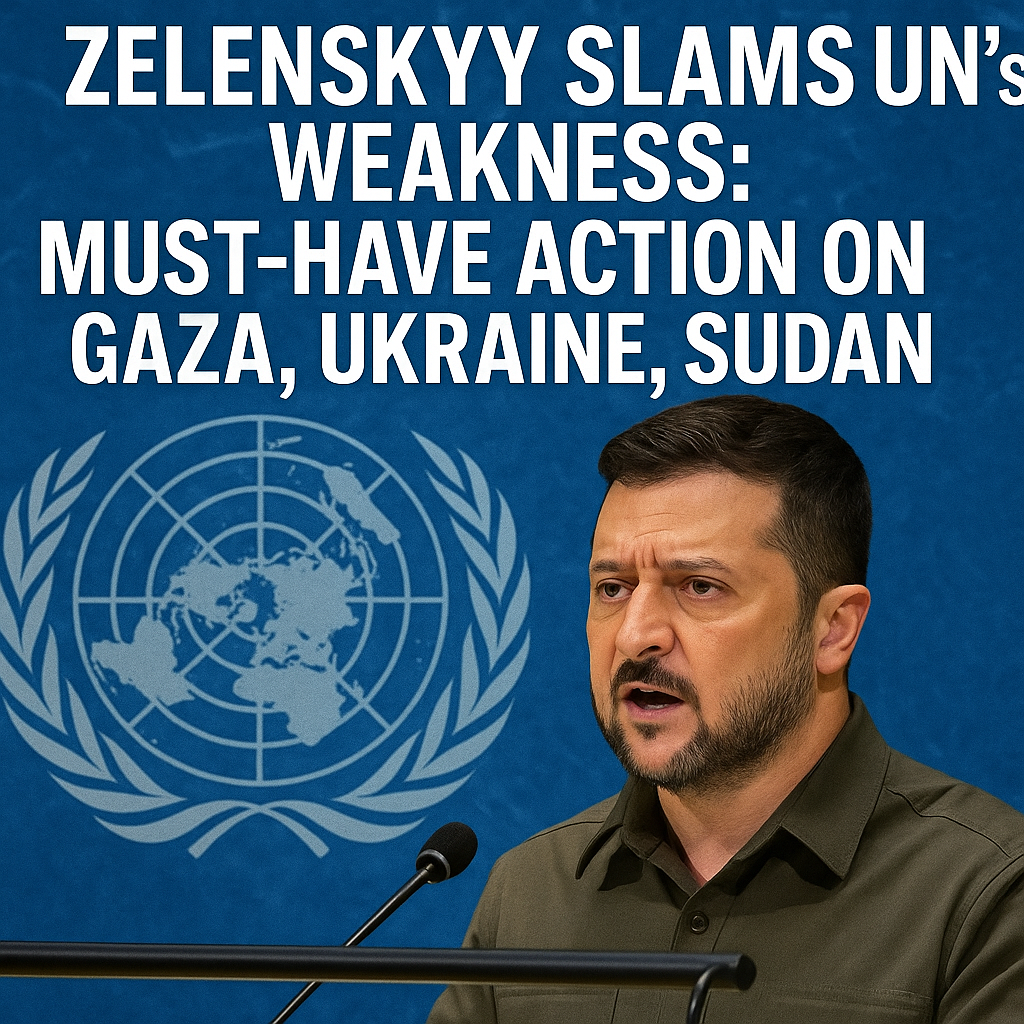Zelenskyy Slams UN’s Weakness: Must-Have Action on Gaza, Ukraine, Sudan
Zelenskyy Slams UN’s Weakness: A Call for Urgent Action
Ukrainian President Volodymyr Zelenskyy has recently voiced strong criticism regarding the United Nations’ inaction in relation to multiple global crises, including those in Gaza, Ukraine, and Sudan. His remarks highlight increasing frustrations with the UN’s perceived inefficacies in addressing pressing humanitarian and geopolitical challenges.
The Case for Urgent Action

Zelenskyy’s comments came during a speech at the UN, wherein he called for concrete, decisive actions rather than mere verbal condemnations. He emphasized that the world is at a critical junction where decisive measures are necessary to foster peace and protect human rights. The wars in Gaza and Ukraine, alongside humanitarian crises in Sudan, exemplify the urgent need for the international community to galvanize a more effective response.
Critique of the UN’s Role
Critics of the UN, including Zelenskyy, assert that the organization’s mechanisms are lagging behind the complexities of modern conflicts. The UN Security Council often faces gridlock, especially when issues involve major powers, leading to a lack of actionable resolutions. For example, the ongoing conflict in Gaza has seen a proliferation of civilian casualties amidst calls for ceasefires that remain unfulfilled. Zelenskyy pointed out that as suffering escalates, the UN must adapt and reform its processes to meet current demands.
The complexities of these conflicts reflect a broader systemic issue. Observers argue that the intersection of geopolitics and humanitarian crises requires the UN to be more than a platform for dialogue; it must evolve into a force for action. Zelenskyy’s frustration is not isolated; various global leaders resonate with his call for an enhanced role of the UN in conflict resolution, suggesting that inaction only perpetuates suffering.
Contrasting Perspectives on UN Effectiveness
Responses to Zelenskyy’s statements varied across different news sources. Some supported his view that the UN is stymied by bureaucratic inertia, while others noted that reforming such an entrenched institution is an intricate challenge. For instance, articles from Al Jazeera highlighted the urgent need for reform within the UN framework, painting a picture of increased frustration from member states facing dire crises. Conversely, media from RT suggested that while reforms are necessary, the UN continues to be pivotal in delivering humanitarian aid and maintaining diplomatic dialogues, even if effectiveness is currently hampered.
The Importance of Collective Responsibility
The plight of civilians in conflict zones such as Gaza and Sudan cannot be understated. Zelenskyy’s call for action is not merely about holding the UN accountable but also about urging a collective global responsibility. The international community bears a shared obligation to ensure that humanitarian laws are upheld, irrespective of borders or political affiliations.
Indeed, while criticism is warranted, the pathway to actionable solutions involves collaboration between nations, as well as between governments and non-governmental organizations. The emphasis on accountability must be coupled with a commitment to develop sustainable frameworks that effectively address the root causes of conflicts and prevent similar crises from occurring in the future.
Moving Forward: Pathways for Improvement
As the crises in Gaza, Ukraine, and Sudan intensify, the urgency for improved tactics and strategies within the UN becomes increasingly clear. Suggested reforms include:
– Decentralizing Decision-Making: A more flexible approach could empower regional bodies or specialized agencies to respond swiftly to specific crises.
– Enhancing Humanitarian Funding: A transparent and predictable funding structure would ensure that resources reach those most in need without undue delay.
– Fostering Multi-Stakeholder Engagement: Collaborating with civil societies and non-governmental organizations can provide local insights and increase the effectiveness of interventions.
While Zelenskyy’s call for action underscores the systemic flaws within the UN, it also highlights the potential that exists for a more robust international community response. The path to reform may be fraught with challenges, but the necessity for decisive action is unequivocal. As global citizens, the responsibility lies with all of us to advocate for change and support initiatives that alleviate human suffering worldwide.
Conclusion
In summary, Volodymyr Zelenskyy’s impassioned plea encapsulates a growing frustration with the UN’s limitations in addressing urgent crises. As the international landscape evolves, so must the structures designed to maintain peace and security. The call for change is not just a plea for accountability but a demand for a renewed commitment to humanitarian principles. Now, more than ever, the world must come together to ensure that those affected by conflict receive the support and protection they deserve.




































